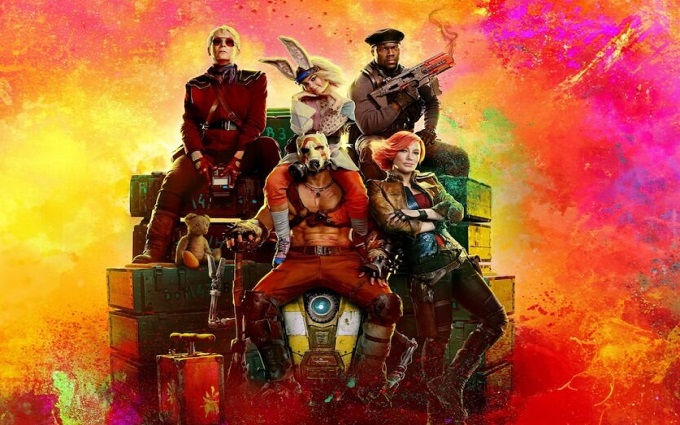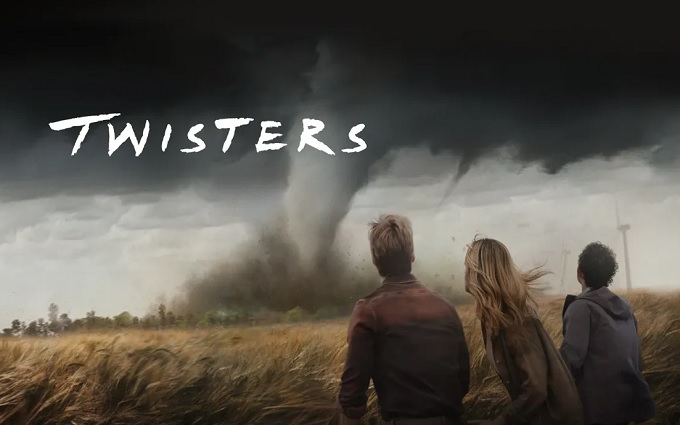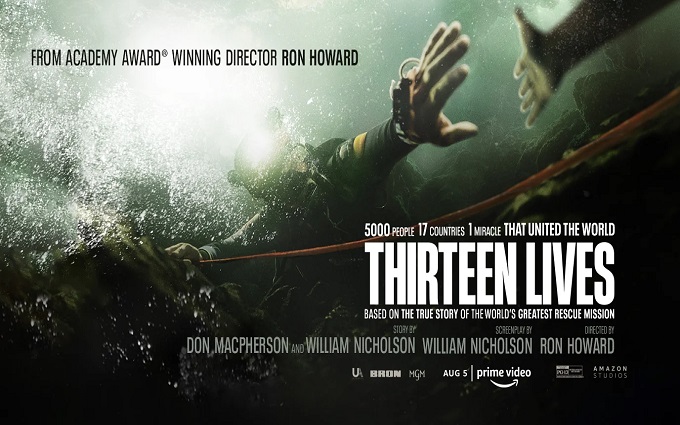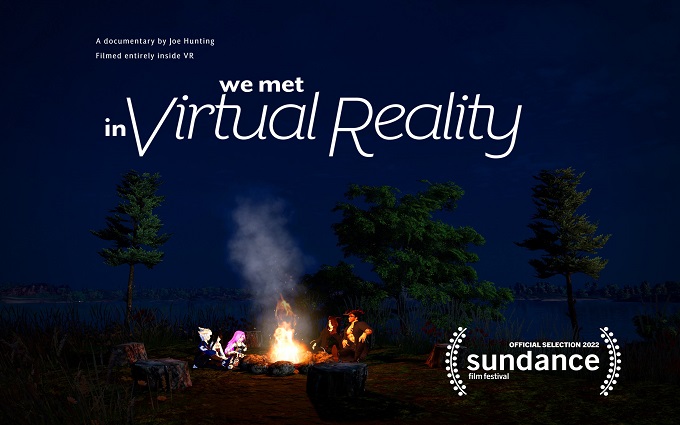The Life of Chuck Review TIFF 2024

The Plot
Inspired by a Stephen King novella and told in three distinct chapters, The Life of Chuck weaves a carefully interconnected and mysterious tale of humanity facing the apocalyptic end of the world and an intimate exploration of the life of a seemingly ordinary accountant named Charles Krantz.
The Good
The Life of Chuck adapts one of Stephen King’s more uncharacteristically optimistic tales, flavoured with his usual brand of supernatural tension but without the sense of nightmarish dread that typically defines his celebrated horror classics. Starkly juxtaposing a kind natured portrait of one man’s life with mankind’s final cosmic curtain call could easily have been an exercise in cruel irony, but instead the film gradually reveals itself to be something far more therapeutic and thankful.
The film’s compartmentalised three act non-linear storytelling structure is also massively effective in preserving the stories’ many central mysteries while also allowing audiences to explore different emotional tones and sometimes complex recurrent philosophical themes in easily digestible ways.
All of this is only possible because of a truly gifted ensemble cast with Chiwetel Ejiofor, Karen Gillan, Mark Hamill and Tom Hiddleston all on equally sensational form. Hiddleston’s fleet footed and kind faced turn as Charles Krantz, the mysterious titular Chuck, serves as a symbolic through line for the entire film. However in reality the film only functions and manages to weave its meticulously interconnected tale thanks to constantly superb performances from the entire cast. Hiddleston’s presence may loom both literally and metaphorically large across the screen but it’s ultimately a grand story of multitudes not just one man.
That said Hiddleston’s famously talented dancing prowess does create one of the film’s most instantly memorable and joyous sequences. It’s an eye catching and shamelessly crowd pleasing moment alongside a steady string of more subtle yet equally uplifting moments.
Overall the film’s ability to find life affirming comfort in the face of seemingly dire disaster and doomed hopelessness feels like a welcome and much needed gift in the increasingly troubled world we now inhabit.
The Bad
As with all grand mysteries this film begins by posing a myriad of unapologetically profound questions for audiences. All of the films mystique is tied to the promise of the grand reveal of eventual answers. Though the film does indeed ultimately deliver on that promise, naturally it won’t entirely satisfy everyone. The boundless ambiguity of metaphysical and supernatural questions allows audiences a little too much room to imagine their own wildly varied explanations. Meaning that when the film does eventually provide a single definitive concrete outcome it will naturally differ from what some people may have hoped for or expected.
That’s not an indictment of the film’s genuinely clever and largely satisfying narrative, just an acknowledgement that mysteries are perhaps always at their most potent when unsolved. In reality most audiences will be pleased that at least the film does deliver firm choices and resolution rather than simply getting hopelessly lost in its own premise or attempting to fudge some kind of deliberately open ended climax.
The Ugly Truth
A brilliant ensemble cast breathe compelling life into a story which is both cosmically grand and touchingly intimate in equal measure. A patient script and earnest performances keep audiences compelled and captures a great deal of Stephen King’s celebrated brilliance. It’s a complex yet simple tale that guides audiences through daunting supernatural mysteries towards satisfying and deeply life affirming conclusions.
Borderlands Review

The Plot
A mismatched team of outlaws and fugitives are forced to search together for a mythical alien treasure on the most dangerous planet in the Galaxy. They have to battle through all manner of monsters, private armies and hordes of barbaric psychos in order to survive and unlock the true mysteries of Pandora.
The Good
Fans of the bestselling video game series will be relieved that this long in development big screen outing finally made it to cinemas. As whatever its flaws this film is likely to be the only crossover media experience gamers get to enjoy for the franchise. To that end it at least manages to introduce the series to some new fans and pay knowing homage to some of the familiar and clearly beloved characters. Hopefully this also helps push the games series forward and encourages renewed efforts to ensure further instalments in the now long running series are crowd pleasing hits.
While it’s impossible to ignore the film’s obvious flaws it is fair to say that certain characters from the game series survive the transfer to the big screen better than others. Comedic robot sidekick Claptrap, voiced enthusiastically by Jack Black, is one such highlight. His antics provide the film with rare moments approaching genuine humour, standing out amidst an otherwise drab sea of miscasting and failed flat delivery.
The Bad
The biggest mystery of Borderlands is not what hidden alien treasures lie buried in the mythical vault, but why Oscar winner Cate Blanchett ever accepted the thankless task of playing the lead role in such an obviously ill-fated video game adaptation.
The 55 year old screen icon looks instantly badly misplaced in neon red hair and a costume seemingly borrowed from a low budget 90s kid’s Saturday morning sci-fi show. Perhaps director Eli Roth and the producers mistakenly hoped that shoehorning an A list dramatic actress into the role of gun toting intergalactic bounty hunter Lilith would lend the production some much needed credibility and distinguish it from other lacklustre big screen video game adaptations.
Unfortunately in reality this decision tragically backfires on the film as luring in household name stars like Blanchett and Kevin Hart only serves to emphasise their obvious miscasting and the missed opportunity to allow fresh faces to provide these popular video characters with more authentic personality.
Audiences are growing more adept at quickly sensing cash grab insincerity and sadly for Borderlands it felt painfully obvious from the first look trailer that this was a film awkwardly assembled by a marketing committee with the embarrassing goal of luring audiences into a disappointing experience. Plagiarising very obviously from James Gunn’s Guardians of The Galaxy, Borderlands tries to recreate the appealing intergalactic magic of catchy classic rock songs and wry wisecracks, but it just feels instantly inferior and joyless.
Almost every aspect of Borderlands feels borrowed and unoriginal, simply a shameless regurgitation of supposedly popular genre tropes wrapped in bad costumes and disappointing CGI. The film somehow manages to look both obviously ill-advisedly expensive and awkwardly ‘cheap’ at the same time. The planet of Pandora is a desert like wilderness strewn with literal trash piles and quite clearly cobbled together through a tragic mix of sound stages and horribly ineffective CGI.
Set against this drab backdrop of failed production value it’s impossible for even household name stars like Blanchett, Hart and Jamie Lee Curtis to invest audiences in proceedings. A threadbare script lacking in ideas, laughs or subtle plot twists also dooms the cast to total failure.
A special mention sadly also must go to young Disney starlet Arianna Greenblatt, her performance as brattish bunny ears wearing bomb enthusiast Tiny Tina is painfully obnoxious and helps push the film even closer to the brink of being truly unwatchable. The fact the much of the film’s plot requires her to be the damsel in distress the misfit band of space antiheroes must rally around to protect makes her chronic unlikability even more unfortunate.
The Ugly Truth
Borderlands is destined to be one of this year’s biggest box office misfires but deservedly so. Miscast star names an awful script and low quality production value throughout makes this a truly joyless space romp that squanders any potential the genuinely fun video game franchise might have had. It feels tragic that studios are still making these sort of embarrassingly costly mistakes in 2024. This feels like the kind of paint by numbers atrocious video game adaptations that would have been greeted with dismay decades ago. It’s a badge of shame for all involved that this film exists as such a disappointing reminder that sometimes Hollywood truly never learns.
Twisters Review

Loosely set in the same universe as the cult classic 90s film, this belated sequel sees a new generation of storm chasers flung recklessly into the path of nature’s fury as they seek to unlock the destructive mysteries of tornedoes for professional and personal reasons.
The Good
For fans of the original film this sequel serves as both a timely reminder and earnest homage to a fondly remembered cult cinematic favourite. While only loosely tied to the original film this return to the ill-advised thrills of storm chasing seeks to recapture the spirit of one of the most memorable blockbuster films of its era. To that extent it adopts a very similar approach to Jurassic World, with both that film and now Twisters effectively serving as a soft reboot/remake of the original, borrowing the concept and world setting whilst introducing an entirely new generation of characters.
One advantage of this is that Twisters can easily be viewed as a standalone film without any need to be familiar already with the 90s original. At the same time returning fans will find just enough obvious references to the first film to recognise the world and feel that the new filmmakers have sufficiently preserved the core components of the newly formed franchise.
While the original film was marketed on the grounds of its awe inspiring effects, bringing the unique terror of tornedoes to life it was in fact largely held together by the compelling human appeal of stars Helen Hunt and Bill Paxton. While it’s obviously impossible to fully replicate those brilliant star turns, the new film at least does well in adding Glen Powell as a likably rugged leading man.
The Bad
While the original Twister was a memorably ground-breaking accomplishment in cutting edge special effects that fused practical tricks with the exciting new frontier of CGI wizardry, sadly this sequel simply can’t replicate that impact. After decades of advances in visual effects audiences are quite simply immune to any sense of shock and awe in the face of any well animated cinematic mayhem.
Robbed of the ability to show audiences anything truly new or more convincingly ‘real’, this new film sadly has its obviously strained plot points and weaker acting moments far more cruelly exposed. Sadly this also worsens the already nagging doubt that this much belated and some would argue redundant sequel is purely a predictable repetition of the original.
Twisters biggest problem is that it’s even more awkwardly noticeable in a second film just how hard the film has to work to come up with plausible excuses to repeatedly put its heroes in the destructive path of a conveniently frequent series of exponentially big ‘killer storms’.
In a modern world full of drones and genuine cutting edge fully automated technology it’s tricky to avoid wondering why anyone really needs to be careening around in trucks a few feet from the edge of apocalyptic size Tornedos. Likewise even when the intrepid storm hunters do take a sensible break from actively driving into danger, it’s a little awkwardly convenient that more monstrous storms seem equally determined to simply come and find them instead.
While the original film mostly managed to hide these obvious flaws in logic and common sense beneath jaw dropping effects and a surprisingly compelling human story, sadly those elements fall far more flat in this sequel, leaving audiences a little too much time to notice how unrealistic or unnecessary the whole spectacular spectacle really is.
The original film had such a satisfying and seemingly conclusive narrative that it’s easy to expect audiences to find themselves quick to question the need to essentially repeat the entire premise purely for some slightly better data sets.
The Ugly Truth
Twisters conspicuously retraces all the steps of the original film but sadly with much diminished returns. It can’t recreate the shock and awe of the once ground-breaking special effects for an audience now fully desensitised to CGI destruction. Likewise a mostly bland cast can’t match the memorable chemistry of the 90’s film. Shoehorning in heavy handed messages about corporate greed and watering down the romantic subplot this time aren’t improvements either.
Ultimately Twisters perhaps works best for newcomers who won’t realise how heavily plagiarized the sequel feels or for devoted fans of the original who will simply accept this as long overdue celebration of the original.
Thirteen Lives Review

The Plot
The astonishing true story of a young soccer team in Thailand who became trapped in the terrifying depths of the flooded Tham Luang Nang Non cave and the fearless team of divers desperately trying to bring them back to their families on the surface as the watching world held its breath.
The Good
Ron Howard brings his peerless directing talents to bare on yet another iconic true story. Just as he previously turned the Apollo 13 mission into a piece of Oscar worthy big screen drama, he succeeds again in breathing tense life into the struggles of a vast international rescue team to do the impossible and retrieve 13 young boys and their coach from the depths of the earth.
Howard’s direction deftly balances authenticity with emotional pathos. The film combines gripping re-enactment of the rescue with subtle exploration of the profoundly emotional journey of the boys, their families and the rescue team. It’s a constant tribute to the power of hope to conquer fear and seemingly impossible challenges.
The film’s excellent cast lead by stars Viggo Mortenson, Colin Farrell and Joel Edgerton all deliver outstanding performances that do true justice to the real life heroes they portray. Their eagerness to largely shun stunt performers in favour of genuinely plunging into the murky underwater world of the caves gives the film a critical added layer of reality. They also do a fantastic job of reminding audiences that their characters aren’t fearless super humans, but merely ordinary people desperately trying to use their accomplished expertise to prevent unspeakable tragedy.
In sharp contrast to the costume clad comic book heroism more typically celebrated on screen, this film provides a poignant and tense reminder of the reality of those who find themselves called by circumstances to face up against unspeakable odds.
Perhaps even more importantly this film doesn’t reductively seek to simplify the agonisingly long and complex rescue process by merely focusing on the divers physically tasked with extracting the boys from the caves. The film documents and celebrates the full scope of the massive multi-national team of thousands of volunteers, experts, officials and locals that worked tirelessly to help the boys survive and making saving them even a possibility.
In particular the film stands as a fitting tribute to those who did lose their lives and made other immeasurably huge sacrifices for the sake of rescuing these children. The film never seeks of sanitise the true cost of accomplishing this impossible feat of salvation.
Even for those who remember following the unfolding drama of the rescue via the constant global media coverage this film remains an important and rewarding experience. The film reveals much about the rescue that will astonish and inspire audiences even further. It’s a gripping and revelatory first-hand account of a ‘story’ which has already captured the hearts of people across the globe.
The Bad
Anyone that suffers from claustrophobia will find the film’s intensely realistic portrayal of the terrifyingly cramped and constantly perilous experience of diving 2.5 miles through submerged caves to be a deeply uncomfortable experience. In truth even those who aren’t overly sensitive to cramped spaces will mostly find themselves squirming uncomfortably the first time the film follows the diving teams underwater. It’s simply impossible not to have a strong reaction to the daunting dangers the rescue team faced constantly during the weeks of rescue work.
While the film’s entire purpose is to share that authentic experience with an audience, it will be unavoidably overwhelming at times for some people.
It’s undeniably important for people to understand the reality of this astonishing rescue, but this celebration of hope and heroism does require a willingness to endure rather than just be entertained.
The Ugly Truth
Thirteen lives is a masterclass in suspense and hope from one of Hollywood’s very best directors. An all-star cast breathes astonishing life into one of the most compelling tales of modern day heroism. Claustrophobic, breath-taking and simply brilliant this is true five star drama that urgently demands to be seen on.
We Met In VR Review Sundance London 2022

The Plot
Shot during the pandemic and exclusively in the online world of VR chat this unique documentary follows a varied group of people as they live, work and play in the newly emerging worlds of virtual reality.
The Good
While wealthy tech tycoons like Mark Zuckerberg greedily try to sell the dream of someday escaping to a fully immersive digital reality, this wonderful documentary shows that for millions of people across the globe that is actually already a huge part of their daily existence.
Uniquely filmed entirely within the luridly colourful worlds of popular platform VR Chat, this film serves as a fascinating and immersive deep dive into that environment. Explored intimately through in depth interviews with the people who are literally living second lives in this strange and ever evolving new digital space.
As the film unfolds it does a magnificent job of answering fundamental questions about what this new technology currently is and what it could ultimately one day become. In particular the heartfelt and often deeply personal stories shared by those who have already embraced this new ‘reality’ goes a long way to countering the inevitable scepticism of those most perplexed by why people would actually want to seemingly abandon the real world in favour of life in a ‘video game’.
The film celebrates the surprisingly wealth of opportunities that VR presents as people find love, learn, play and briefly escape or even overcome the loss, turmoil and anxiety of their ‘real’ lives. Perhaps the film’s most impressive achievement is that by the closing credits the question about what exactly constitutes our ‘real’ lives has become a much more nuanced discussion.
While the film doesn’t carelessly gloss over the obvious issues with people’s behaviour in the anonymous mostly consequence free wild west of the internet, it’s simply purposefully more preoccupied with the many amazing positive qualities of this vibrant and ever growing digital community.
Ultimately the film becomes more intriguing the longer you watch. Fully realising its ambition by the end of challenging our current perhaps soon to be outdated concepts of identity, social interactions and the very limits of technology itself.
The Bad
The early phases of the film may be especially jarring and disorientating for those unaccustomed to the very specific visuals of Virtual Reality. In contrast to the real world or even the amazingly polished special effects of Hollywood blockbusters, the current state of Virtual reality is far more modest and glitch ridden.
On a big screen every moment of temporarily frozen graphics or characters and objects moving in suddenly erratic and nonsensical ways in on stark display. While it doesn’t diminish the emotional and philosophical impact of the documentary, it is something the uninitiated will have to get used to.
Likewise it’s fair to say that the largely anime inspired avatars that inhabit the virtual world may feel a little odd to novice eyes. The literally glittering array of cat ears, dragon wings, jiggling boobs, animal tails and technicoloured hair may simply seem a little ‘silly’ at first. Perhaps this might at least initially mask some of the thought provoking and serious topics the film explores. But the film offers exceedingly rich rewards for the patient and open minded.
The Ugly Truth
We Met In VR is a truly fascinating piece of documentary cinema that captures the birth of a transformative new technology. It serves as a handy initiation for those unfamiliar with the ever expanding digital horizons of this brave new world and also as a surprisingly poignant meditation on human identity and relationships.